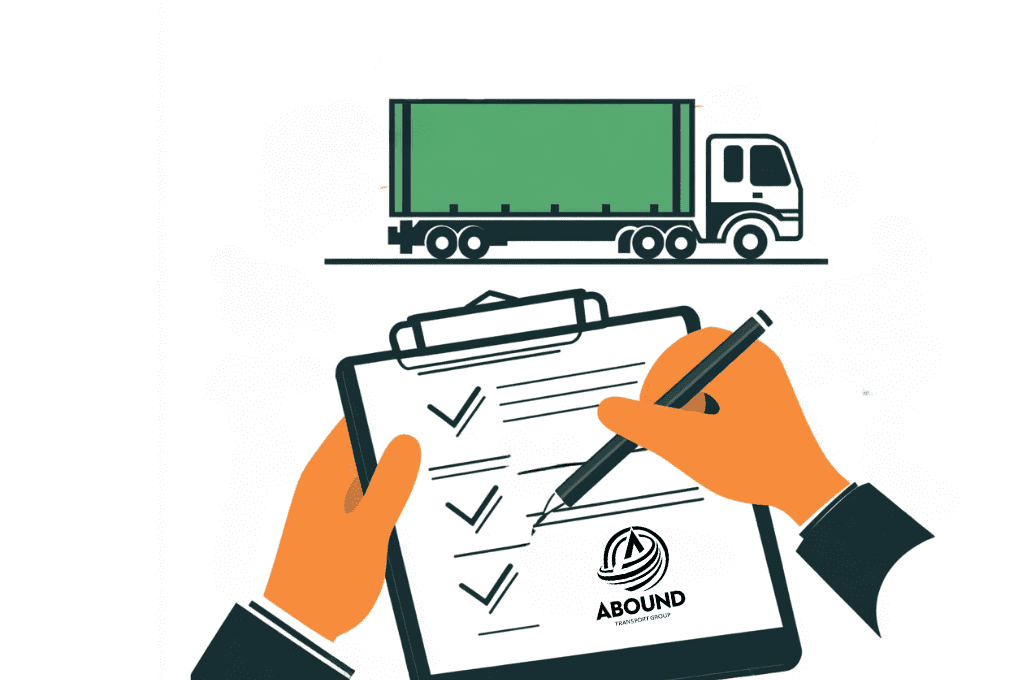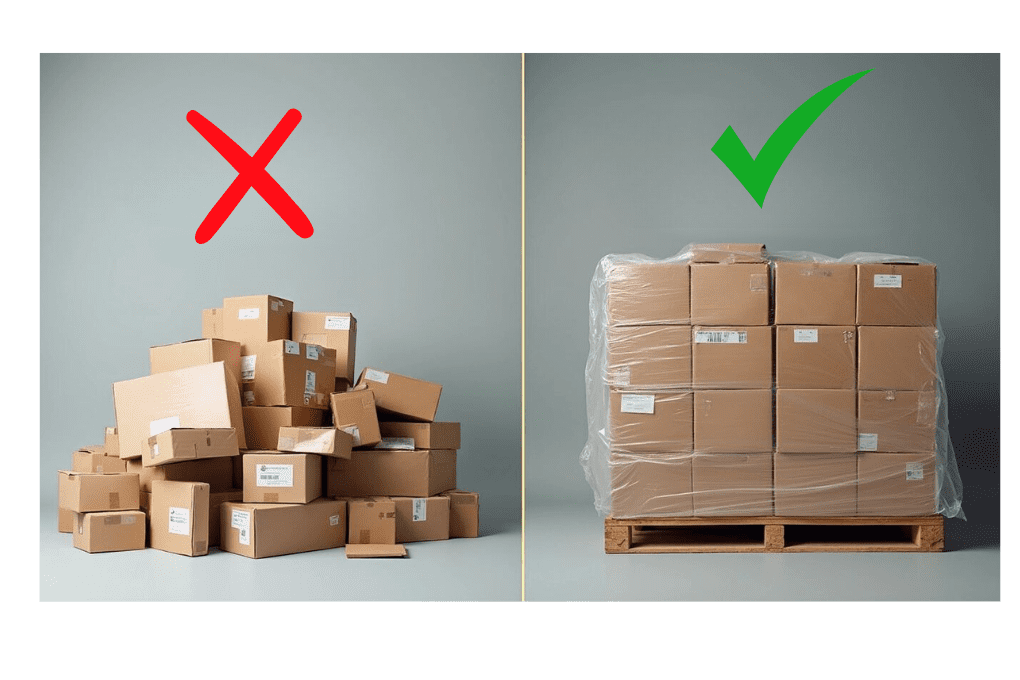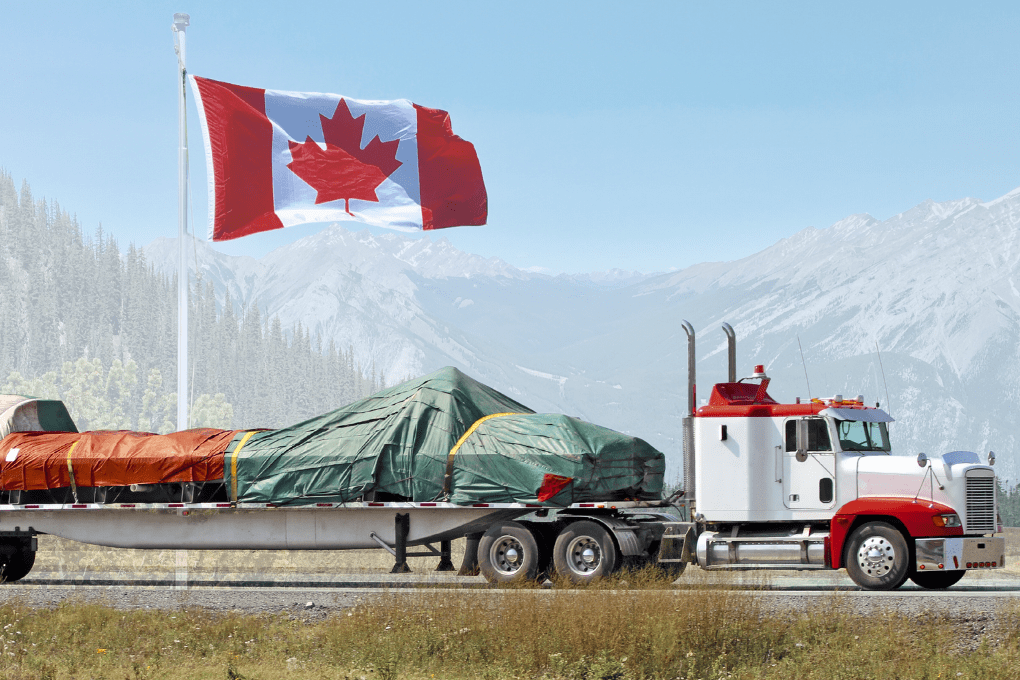Cross-border trade between the United States and Mexico plays a critical role in their economic relationship, with billions of dollars in goods exchanged each year. Flatbed freight shipping is integral to moving large, heavy, or irregularly shaped items like construction materials, machinery, and steel between the two countries. To ensure the successful transport of these items, it’s essential to understand shipping regulations, customs clearance, and cargo insurance requirements.
This guide will help you navigate the complexities of shipping flatbed freight across the U.S.-Mexico border, ensuring a smooth and efficient process.

Understanding International Shipping to Mexico
Shipping flatbed freight from the U.S. to Mexico requires attention to several important factors, including shipping costs, delivery times, and customs compliance. Understanding these components will help ensure that your shipment reaches its destination without issues.
Shipping Costs and Delivery Times
The cost of shipping flatbed freight to Mexico depends on the size and weight of the shipment, the shipping method you choose, and the applicable customs fees and duties. Larger shipments are typically more expensive due to their size and weight. In terms of delivery times, Full Truckload (FTL) shipping options generally provide faster transit, as the truck is dedicated to one shipment. However, Less-than-Truckload (LTL) or intermodal shipping may take longer because multiple shipments are combined into one trip, increasing the number of stops along the way.
Compliance with Customs Regulations
To avoid delays at the border, it is essential to comply with Mexican customs regulations. Each shipment must be accompanied by accurate documentation, including details about the contents of the shipment, its value, and its intended purpose. If you are importing goods to Mexico for the first time, working with a Mexican Customs Broker is critical. A broker will ensure that your documentation is complete and that your shipment moves smoothly through the customs clearance process.

Understanding International Shipping to Mexico
When shipping flatbed freight from the U.S. to Mexico, several factors determine how your shipment will be handled, including costs, delivery times, customs compliance, and cargo insurance.
Shipping Costs and Delivery Times
Shipping costs vary depending on the size and weight of your freight. Larger and heavier shipments will naturally incur higher costs. The mode of transport you select also affects the price. Choosing Full Truckload (FTL) shipping typically leads to higher costs but faster delivery, as the truck is dedicated solely to your cargo. On the other hand, Less-than-Truckload (LTL) shipping can be a more cost-effective option for smaller shipments, though delivery times may be longer since your cargo shares space with other shipments. Additionally, customs fees and duties must be factored in, which are determined by the type of goods being transported.
Delivery times depend not only on the mode of transportation but also on the distance between the origin and destination. While FTL shipments generally move more quickly, LTL or intermodal options may extend transit times.
Compliance with Customs Regulations
Ensuring compliance with Mexican customs regulations is essential to avoid unnecessary delays at the border. Every shipment must be accompanied by the proper documentation that details the contents, value, and purpose of the shipment. A key part of this process is working with a Mexican Customs Broker, who ensures that your shipment is cleared appropriately and complies with all relevant customs regulations.
Choosing the Right Shipping Options for Mexico
The success of your shipment relies heavily on selecting the most appropriate shipping method for your flatbed freight. This decision depends on the size of your shipment, its urgency, and your budget.
Full Truckload (FTL) vs. Less-than-Truckload (LTL)
For larger shipments that fill an entire truck, Full Truckload (FTL) shipping is often the best option. With FTL, the entire truck is dedicated to your cargo, ensuring faster delivery since there are no additional stops. For smaller shipments, Less-than-Truckload (LTL) shipping may be more appropriate. Although it takes longer since your cargo is combined with other shipments, LTL allows for cost savings by sharing truck space. Both options are viable depending on your shipment size and delivery requirements.
Flatbed Trailers for Oversized Freight
For oversized or irregularly shaped freight, such as construction materials, machinery, and steel, flatbed trailers are often the most practical solution. Flatbed trailers offer the open-deck space needed to transport these types of cargo easily, allowing for more flexibility when loading and unloading items that may not fit in enclosed trailers.
Intermodal Transportation
Intermodal transportation is another shipping option, which combines different modes of transport, such as rail and truck. While intermodal shipping can be a cost-effective choice for long-distance freight, it may not be ideal for time-sensitive or oversized shipments. This method can take longer due to transfers between modes of transport and the availability of equipment.

Customs and Regulations for Flatbed Freight to Mexico
Navigating customs regulations is crucial when shipping internationally. Completing all documentation accurately is vital for preventing delays, fines, or even rejected shipments.
Working with a Mexican Customs Broker
For any commercial shipment heading to Mexico, working with a Mexican Customs Broker is mandatory. The customs broker handles the necessary paperwork, ensures that all import duties and taxes are correctly applied, and makes sure the shipment complies with Mexican regulations. Their role is to facilitate smooth and timely customs clearance, reducing the risk of delays.
Import Duties and Taxes
Once your shipment arrives at the border, import duties and taxes will apply based on the declared value of the goods. This is why it is crucial to declare the value of your shipment accurately. Misrepresentation of value or incorrect documentation can result in fines or delays, so ensuring accuracy is essential for a smooth customs process.
Restrictions and Compliance
Certain items are subject to restrictions or regulations when shipped to Mexico. It’s important to verify that your goods comply with all necessary regulations. Ensuring compliance helps avoid issues such as rejected shipments, extended inspections, or additional fees at the border. Working closely with your customs broker can help navigate these complexities.
Cargo Insurance for Flatbed Freight to Mexico
Shipping high-value goods, such as heavy machinery or construction materials, requires the right cargo insurance to protect your shipment from potential damage or loss. Abound Transport, powered by Armstrong, offers a specialized all-risk insurance option that many brokers don’t provide.
Cross-Border Cargo Insurance
It’s important to understand that standard U.S. cargo insurance does not extend into Mexico. Once your shipment crosses the border, it faces different risks and regulations. To fully protect your freight, you must purchase supplemental cross-border cargo insurance through Abound Transport. This coverage is not automatically included with our service but is an essential add-on to ensure your shipment is safeguarded during its journey into Mexico. Without this insurance, your cargo is exposed to risks like damage or theft.
$500,000 All-Risk Coverage
For high-value shipments such as machinery or steel, we offer all-risk cargo insurance covering up to $500,000. This comprehensive protection can only be secured through Abound Transport and is critical for ensuring that your freight is protected against damage, theft, and accidents throughout the cross-border journey. Many logistics providers do not offer this level of coverage, making Abound Transport’s insurance a valuable option to give you peace of mind when shipping into Mexico.

Best Practices for Flatbed Freight Shipping to Mexico
To ensure a seamless shipping experience, it’s important to follow certain best practices when transporting flatbed freight across the U.S.-Mexico border.
Work with an Experienced Logistics Provider
Choosing an experienced logistics provider is one of the most important steps you can take to ensure a successful shipment. A logistics provider with expertise in cross-border flatbed shipping will have a reliable network of carriers and a thorough understanding of both U.S. and Mexican customs procedures. Their experience helps avoid delays and ensures your shipment is handled efficiently.
Secure Proper Documentation
One of the most common reasons for shipping delays is incomplete or incorrect documentation. Ensure that all customs forms, invoices, and relevant certificates are accurate and submitted well before your shipment departs. Proper documentation speeds up customs clearance and reduces the risk of your shipment being held at the border.
Ensure Load Security
Properly securing and packaging your flatbed freight is essential for a safe journey. Ensuring that the load is well packaged will help prevent damage while on the rough roads of Mexico and reduce the risk of fines or delays due to improper load handling.

Conclusion: Simplify Flatbed Freight Shipping to Mexico
Shipping flatbed freight to Mexico requires careful planning and attention to detail. Understanding the logistics, customs regulations, and insurance options available to you will help ensure a smooth and successful process. By selecting the right transportation options, securing accurate documentation, and purchasing the appropriate insurance coverage, you can minimize risks and ensure your shipment arrives on time.
Working with an experienced logistics provider like Abound Transport is essential for navigating the complexities of cross-border shipping. With the right guidance, your oversized freight—whether it’s construction materials, machinery, or steel—will reach its destination in Mexico safely and on schedule.
FAQ
What types of goods are best suited for flatbed shipping to Mexico?
Flatbed trailers are ideal for transporting large, irregularly shaped items such as construction materials, heavy machinery, and steel products that cannot fit in standard enclosed trailers.
Do I need special cargo insurance for shipping to Mexico?
Yes, standard U.S. cargo insurance typically does not cover shipments once they cross into Mexico. Purchasing supplemental cross-border cargo insurance is essential to protect your freight during transit.
What documentation is required for customs clearance in Mexico?
Customs forms, bills of lading, and invoices are required for customs clearance. Working with a Mexican Customs Broker ensures that all necessary documentation is accurate and complete.
How can I avoid customs delays when shipping flatbed freight to Mexico?
To avoid delays, ensure all required documentation is complete and submitted in advance. Partnering with an experienced logistics provider helps expedite the process and ensures compliance with customs regulations.
What is the best way to ship oversized items to Mexico?
Flatbed trailers are the best option for shipping oversized or irregularly shaped items, such as machinery and steel products, to Mexico.


